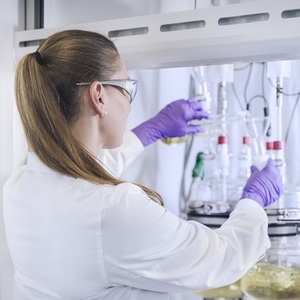BDI-BioEnergy announces EFSA approval for RepCAT process

April 20, 2021
BY BDI-BioEnergy International
Already for decades, BDI-BioEnergy International has been committed to the development of innovative technologies. The company has been able to create technological milestones, above all, in biodiesel production from residual and waste materials. For example, the company built the world’s first plants using waste cooking oils, animal waste fats or grease trap fats to produce biodiesel.
The RepCAT process is based on a patented sustainable technology using a recyclable catalyst in biodiesel production. This important process step increases product quality while reducing the consumption of operating materials.
After several years of effort, another milestone has been created. BDI’s research team has succeeded in convincing the European Food Safety Agency (EFSA) that the RepCAT process is suitable for the recycling of high-risk fat materials. Thus, the RepCAT process can be used to safely produce high-quality biodiesel from highly contaminated animal fats that pose a risk to the environment. This positive assessment was based on joint trials with the renowned University Medical Center Hamburg-Eppendorf (headed by Prof. Glatzel) which led to a recognized technical publication.
Currently, BDI is building three large-scale industrial biodiesel plants in the USA and Europe by means of the RepCAT technology.
Advertisement
Advertisement
“This success reflects our constant efforts to not only provide the best technical solution for our customers, but also to positively influence the economic framework of biodiesel production so that our customers can generate a market advantage over their competitors,” BDI’s CEO, Markus Dielacher explains.
Advertisement
Advertisement
Related Stories
Marathon Petroleum Corp. on Aug. 5 released second quarter financial results, reporting improved EBITDA for its renewable diesel segment. The company primarily attributed the improvement to increased utilization and higher margins.
Chevron Corp. on Aug. 1 confirmed the company started production at the Geismar renewable diesel plant in Louisiana during the second quarter after completing work to expand plant capacity from 7,000 to 22,000 barrels per day.
The public comment period on the U.S. EPA’s proposed rule to set 2027 and 2027 RFS RVOs and revise RFS regulations closed Aug. 8. Biofuel groups have largely expressed support for the proposal but also outlined several ways to improve the rulemaking.
In celebration of World Biodiesel Day, MOL Group on Aug. 8 announced SAF was successfully produced for the first time at INA’s Rijeka Refinery during a pilot project to process biocomponent. Renewable diesel was also produced.
Iowa farmers have a new market opportunity for their 2025 soybean crop. Landus is expanding its Clean Fuel Regulation initiative, made possible by recent policy changes expected to increase Canada's demand for liquid biofuel.
Upcoming Events










